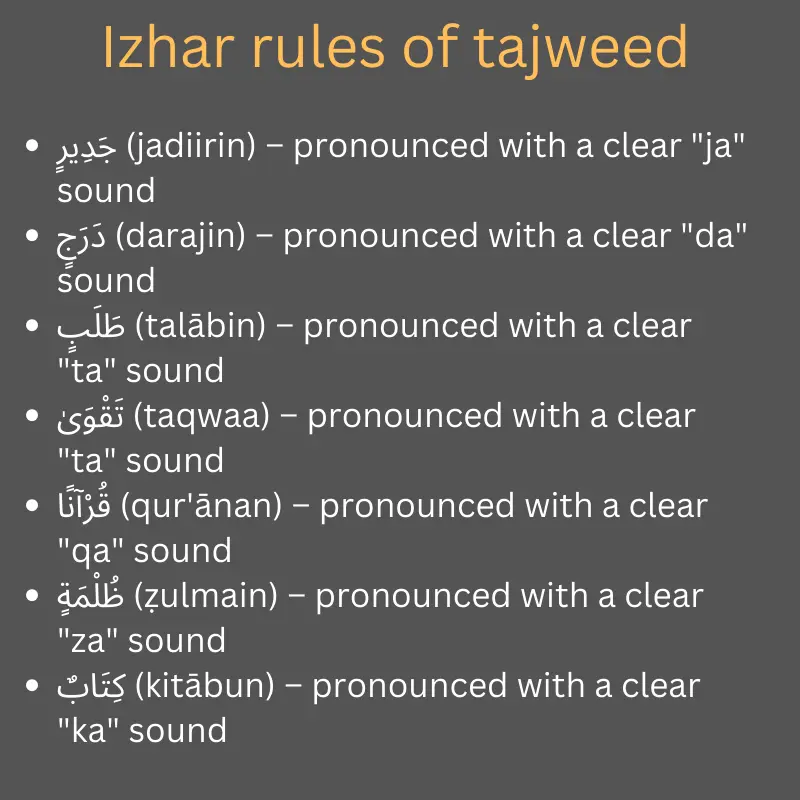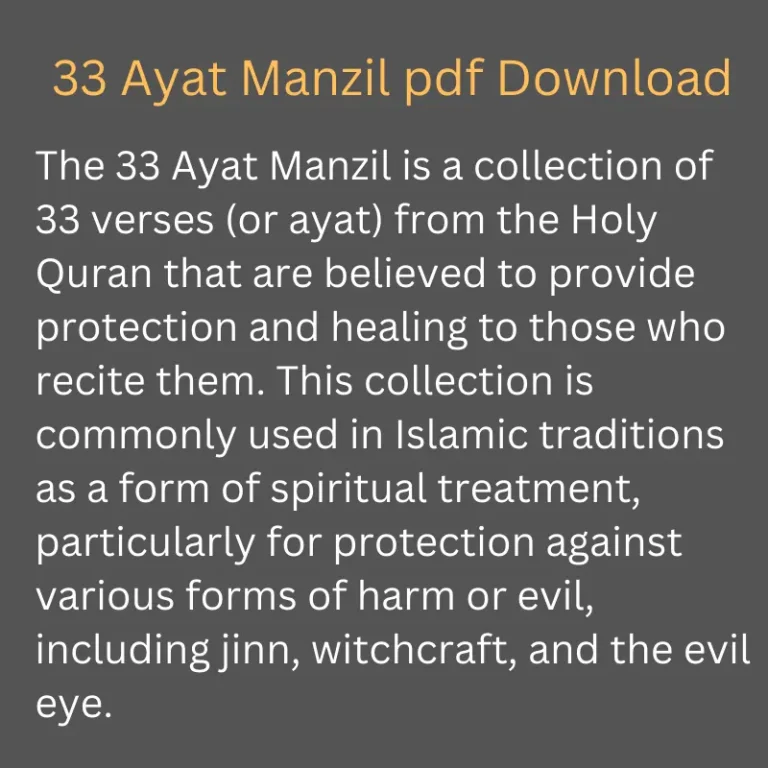If you are a Muslim, you are most likely familiar with the Quran, the holy book that contains the word of Allah as revealed to the Prophet Muhammad. Quranic recitation is an essential part of Islamic worship, and the proper recitation of the Quran is highly valued in Muslim communities around the world. One of the key aspects of Quranic recitation is the correct pronunciation of each letter and word, which is why the rules of Tajweed are so crucial. In this article, we will explore the Izhar rules of Tajweed, which focus on the correct pronunciation of certain letters in the Arabic language.
Introduction to Tajweed
Before we dive into the Izhar rules, it’s important to understand what Tajweed is and why it’s so important. Tajweed is the science of reciting the Quran with proper pronunciation, intonation, and rhythm. It involves the correct articulation of each letter and word, as well as the application of various rules that govern how those letters and words are pronounced in different contexts.
Tajweed is essential for the proper recitation of the Quran, as it ensures that the meaning of each verse is preserved and conveyed accurately. It also enhances the beauty of the recitation, making it more melodious and pleasing to the ear.
What is Izhar?
Izhar is a Tajweed rule that deals with the correct pronunciation of the Arabic letters “ب”, “ج”, “د”, “ط”, “ت”, “ق”, “ظ”, and “ك”. In Arabic, these letters are called “حروف الهجاء المهملة” (unpronounced letters), as they are pronounced with a slight pause or emphasis. The Izhar rule states that these letters should be pronounced clearly and distinctly, without any nasal or throaty sound.
Examples of Izhar Rules of Tajweed
To understand the Izhar rule more clearly, let’s look at some examples:
- بَحْرٍ (baħrin) – pronounced with a clear “ba” sound
- جَدِيرٍ (jadiirin) – pronounced with a clear “ja” sound
- دَرَجٍ (darajin) – pronounced with a clear “da” sound
- طَلَبٍ (talābin) – pronounced with a clear “ta” sound
- تَقْوَىٰ (taqwaa) – pronounced with a clear “ta” sound
- قُرْآنًا (qur’ānan) – pronounced with a clear “qa” sound
- ظُلْمَةٍ (ẓulmain) – pronounced with a clear “za” sound
- كِتَابٌ (kitābun) – pronounced with a clear “ka” sound
In each of these examples, the letters that are normally pronounced with a slight pause or emphasis are pronounced clearly and distinctly, without any nasal or throaty sound.
Importance of Izhar
The Izhar rule is essential for the proper recitation of the Quran, as it ensures that the meaning of each word is conveyed accurately. If these letters are not pronounced clearly and distinctly, the meaning of the word can be changed, which can lead to misunderstandings and confusion.
In addition, the Izhar rule enhances the beauty of the recitation, making it more melodious and pleasing to the ear. When each letter is pronounced clearly and distinctly, the recitation becomes more rhythmic and harmonious, which is particularly important in the context of Quranic recitation.
How to Learn
Learning the Izhar rule, and Tajweed in general, is not an easy task, and it requires dedication, patience, and practice. One of the best ways to learn Tajweed is to study with a qualified teacher who can guide you through the rules and provide feedback on your recitation.
There are also many resources available online, such as videos, courses, and apps, that can help you learn Tajweed and practice your recitation. Some of these resources even provide feedback on your pronunciation, allowing you to improve your recitation in a self-paced manner.
In addition to learning the rules of Tajweed, it’s important to also understand the meaning and context of the verses you are reciting. This will allow you to convey the message of the Quran more effectively and connect with the words on a deeper level.
Benefits of Reciting Quran with Tajweed
Reciting the Quran with Tajweed has many benefits, both spiritual and practical. Some of the main benefits include:
- Strengthening your connection with Allah and increasing your faith
- Improving your Arabic pronunciation and vocabulary
- Enhancing your memory and cognitive abilities
- Reducing stress and anxiety
- Promoting inner peace and tranquility
The Izhar rules of Tajweed are an essential aspect of Quranic recitation, as they ensure the accurate pronunciation of certain letters in the Arabic language. Learning Tajweed and reciting the Quran with proper pronunciation, intonation, and rhythm is a crucial part of Islamic worship, and it has many spiritual and practical benefits.
If you are interested in learning Tajweed, there are many resources available that can help you on your journey. With dedication, patience, and practice, you can master the art of Quranic recitation and deepen your connection with Allah.
What are the other rules of Tajweed besides Izhar?
There are many other rules of Tajweed, such as Ikhfa, Ghunna, and Qalqalah, that deal with the correct pronunciation of different letters and words in the Quran.
Can I learn Tajweed on my own, or do I need a teacher?
While it is possible to learn Tajweed on your own, it is highly recommended to study with a qualified teacher who can guide you through the rules and provide feedback on your recitation.
Is Tajweed only for Arabs, or can non-Arabs learn it too?
Tajweed is for anyone who wants to recite the Quran with proper pronunciation, regardless of their ethnicity or nationality.
Is it necessary to recite the Quran with Tajweed in order to fulfill my religious obligations?
While it is not necessary to recite the Quran with Tajweed in order to fulfill your religious obligations, it is highly recommended to do so in order to convey the message of the Quran accurately and connect with its words on a deeper level.








